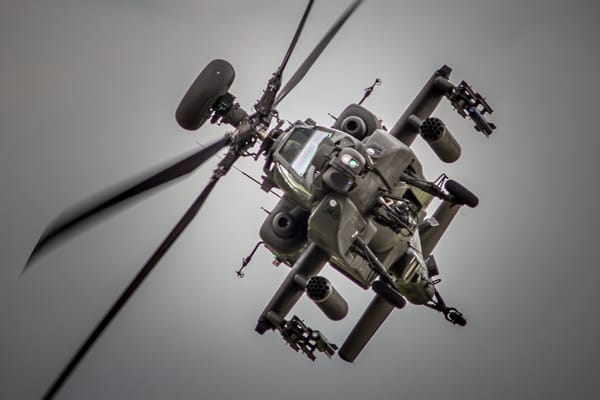🇨🇳 Ministry of State Security (MSS)

The Ministry of State Security (MSS) of the People’s Republic of China is widely regarded as one of the most influential and secretive intelligence organizations in the world. Officially established in 1983, the MSS combines many of the responsibilities that in other countries would be divided among multiple agencies. Often likened to a hybrid of the United States’ Central Intelligence Agency (CIA) and Federal Bureau of Investigation (FBI), its mandate spans both foreign intelligence gathering and domestic counter-intelligence.
The MSS plays a critical role in safeguarding China’s national security interests. Domestically, it focuses on preventing espionage, political subversion, and activities deemed threatening to the authority of the Chinese Communist Party (CCP). On the international front, the agency conducts operations aimed at acquiring political, military, and economic intelligence, with an increasing emphasis on technology transfer and cyber capabilities.
Underpinning all of this is a complex, tightly guarded bureaucracy. Little is published about its internal workings, leadership structure, and methods of operation. That secrecy extends to its size and budget; specifics are classified and rarely, if ever, revealed to the public. Despite the shroud of mystery, the MSS remains vital to the CCP’s overarching strategy: maintaining internal stability, promoting China’s influence abroad, and managing risks associated with the nation’s rapid ascent on the global stage.
Over the past four decades, the MSS has undergone significant changes in its scope, technology, and strategic mission. From its Cold War origins to its current role in a multipolar world dominated by economic competition and cyber conflicts, the agency’s evolution reflects broader shifts in China’s approach to power and security. In the following sections, we will examine the major phases of its development, exploring how each period shaped the modern MSS.
History
Though the Ministry of State Security emerged as a discrete entity in the early 1980s, its roots can be traced to earlier intelligence efforts under the People’s Republic of China and, in part, even to the CCP’s clandestine networks before it took power in 1949. Below, the agency’s history is broken into several key phases, each marking substantial changes in its organization and objectives.
Origins and Pre-MSS Intelligence (1949–1983)
Early Communist Rule (1949–1950s). After the founding of the People’s Republic of China in 1949, the new government moved quickly to establish an intelligence apparatus to maintain political control and manage foreign threats. Intelligence functions at this time fell largely under the Ministry of Public Security (MPS) and various military intelligence units. During the Korean War (1950–1953), intelligence-gathering activities focused heavily on assessing American and United Nations military capabilities, as well as monitoring domestic opposition.
Political Turbulence (1960s–1970s). The 1960s and 1970s were marked by intense internal political upheavals, notably the Cultural Revolution (1966–1976). During this period, intelligence operations often became entangled in factional struggles. Different intelligence arms within the party and the military pursued overlapping or even competing mandates. The leadership recognized that a more centralized, streamlined intelligence structure was necessary for effective governance—particularly as China sought to protect state secrets and navigate a complex global environment that included the Sino-Soviet split and escalating Cold War rivalries.
Foundation for a Separate Security Agency. By the late 1970s and early 1980s, Deng Xiaoping’s “Reform and Opening Up” policies shifted China’s strategic priorities from ideological crusades to economic development and stability. This transition increased the need for robust foreign intelligence-gathering, especially related to technology and economic strategy. The groundwork for a separate civilian intelligence agency began to take shape as policymakers recognized the need for a more targeted approach to both counter-intelligence and foreign intelligence collection.
Founding and Early Years (1983–late 1980s)
Establishment of the MSS (1983). On June 30, 1983, the Chinese government officially formed the Ministry of State Security, separating its functions from the Ministry of Public Security. Unlike the MPS, which is primarily concerned with domestic law enforcement and public order, the MSS was tasked with a broad intelligence mission spanning political security, counter-espionage, and foreign intelligence. Leaders envisioned an organization that could function much like the KGB did in the Soviet Union, encompassing both domestic and external dimensions under one umbrella.
Cold War Context. The MSS’s establishment coincided with the final phase of the Cold War. Though China had broken politically with the Soviet Union years earlier, it still faced the dual pressures of Soviet military might along its northern border and U.S. influence in East Asia. The agency focused on countering perceived threats from both superpowers while collecting information that would support China’s modernization efforts, particularly in defense and technology.
Organizational Structure. During these early years, the MSS developed specialized departments, some oriented toward domestic security, others on regional or country-specific intelligence gathering. This period also cemented the agency’s practice of minimal public transparency, a trait it inherited from older CCP intelligence traditions. Internally, the MSS answered directly to top party officials, ensuring its operations were in line with CCP objectives.
Post-1989 Shifts and the 1990s
Aftermath of Tiananmen (1989). The Tiananmen Square protests in 1989 marked a turning point for Chinese leadership in terms of domestic security concerns. Although the Ministry of Public Security and the People’s Armed Police took the lead in quelling the protests, the MSS emerged from the crisis with a renewed emphasis on preempting organized political dissent. Monitoring intellectuals, student groups, and perceived “subversive” elements became a high priority, bolstering the agency’s domestic counter-intelligence role.
Economic and Technological Focus. During the 1990s, as China’s economy expanded through market-oriented reforms, the MSS shifted part of its focus to economic and technological intelligence. Reports from various governments suggested that MSS-linked operations sought to acquire advanced technologies to accelerate China’s modernization. These efforts ranged from industrial espionage targeting foreign corporations to sophisticated cyber intrusions that tested the boundaries of global cyber-security protocols.
Diplomatic and Global Engagement. Alongside China’s growing international engagement, the MSS also began sending personnel abroad under diplomatic cover. Embassies and consulates often hosted MSS operatives, who collected information on host countries and monitored overseas Chinese communities. The agency worked closely with Chinese state-owned enterprises (SOEs) and other organizations expanding abroad, offering intelligence support and ensuring that overseas ventures did not pose risks to CCP control.
21st Century Developments and Modernization
Rise of Cyber Capabilities (Early 2000s–2010s). The digital revolution expanded the MSS’s battlefield from physical infiltration to cyberspace. Throughout the 2000s and into the 2010s, multiple cybersecurity firms and Western intelligence agencies publicly attributed large-scale data breaches and corporate espionage campaigns to China-linked actors, some reportedly associated with the MSS. The agency allegedly targeted a wide range of sectors, including defense, advanced manufacturing, pharmaceuticals, and communications technology.
Structural and Legal Adjustments. In response to global and domestic challenges, China introduced various laws related to cyber security, national security, and intelligence operations, further legitimizing the MSS’s work. The 2017 National Intelligence Law, for instance, expanded the legal framework for intelligence agencies to operate domestically and abroad. While these developments formalized some aspects of MSS authority, they also heightened international scrutiny, with foreign governments raising concerns about potential extraterritorial reach and forced cooperation from Chinese companies.
Present-Day Role. Today, the MSS wields substantial influence in shaping China’s security policies. It continues to coordinate closely with the People’s Liberation Army (PLA) intelligence units and the Ministry of Public Security, ensuring a comprehensive approach to national security. As China’s economic and geopolitical ambitions grow—through projects like the Belt and Road Initiative—so too does the MSS’s global footprint. The agency’s priorities have expanded to include political interference, technology procurement, protection of overseas Chinese interests, and countering perceived attempts by foreign powers to influence domestic affairs.
Outlook
In the four decades since its formal establishment, the Ministry of State Security has evolved from a relatively narrow intelligence body into a sprawling security apparatus that intersects nearly every dimension of Chinese society and global engagement. Its formation in the early 1980s reflected the CCP’s realization that effective governance in a complex world demanded a dedicated civilian intelligence service. Over time, this agency adapted to shifting geopolitical priorities—from countering Cold War threats to acquiring advanced technologies critical to China’s economic rise.
The MSS remains characterized by its secrecy. Publicly available information is limited to broad outlines of its responsibilities, occasional high-profile spy cases, and intermittent official statements. Nevertheless, it is clear that the MSS plays a central role in both foreign and domestic intelligence activities—often with considerable international ramifications. Cyber espionage allegations underscore the agency’s ongoing quest to sustain China’s technological competitiveness, while its domestic work indicates persistent vigilance against potential challengers to CCP authority.
Looking ahead, the MSS’s prominence is likely to increase, given China’s expanding global influence. Intensifying strategic competition—especially with the United States—will underscore the importance of intelligence in shaping foreign policy, technology acquisition, and economic strategies. Cyber operations will undoubtedly remain a priority, as digitization permeates critical sectors around the world. Simultaneously, the agency’s internal security function will continue to secure the CCP’s hold on power, focusing on areas such as ideological conformity, ethnic unrest in sensitive regions like Xinjiang and Tibet, and rapid information flows within Chinese society.
Ultimately, the Ministry of State Security’s trajectory mirrors the evolution of modern China itself: both the agency and the state are navigating the complexities of a highly interconnected global system while maintaining an adherence to political stability and national sovereignty. In the process, the MSS will continue to play a decisive, if often opaque, role in shaping China’s path on the world stage.





